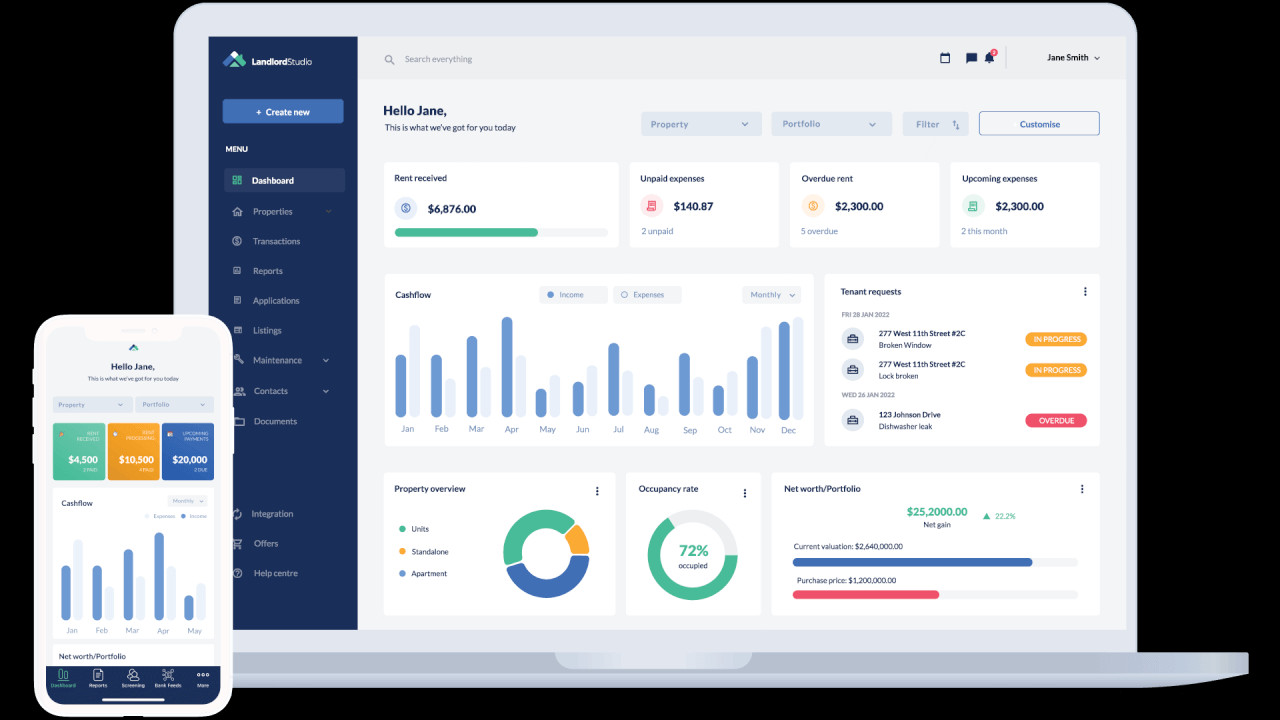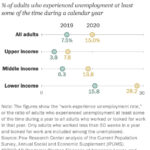How Much Are You Taxed On Rental Income? Understanding rental property taxation is crucial for maximizing your investment returns. At income-partners.net, we provide the resources and strategies you need to navigate rental income taxes effectively, enabling you to optimize your tax obligations and grow your rental income streams. Optimize your rental earnings today with our expert guidance on rental property taxes, deductions, and income optimization.
1. Understanding Rental Income Tax: The Basics
What exactly is rental income, and how does it work?
Rental income is any payment you receive for the use or occupancy of a property, as defined by the IRS. This includes not just rent payments but also advanced rent, tenant fees, and other forms of compensation. Rental income is generally taxed as ordinary income at your standard income tax rates at both the state and federal levels, unless you are operating as a corporation such as an LLC or S-Corp. Knowing this is the foundation for managing your tax obligations.
1.1. What Constitutes Rental Income?
Rental income includes more than just monthly rent payments. It’s important to understand all the potential sources of income from your rental property.
- Rent Payments: Regular monthly rent received from tenants.
- Advanced Rent: Payments received for future periods.
- Tenant Fees: Late fees, pet fees, and early termination fees.
- Non-Refundable Security Deposits: Deposits you keep to cover damages.
- Tenant-Paid Expenses: Expenses paid by tenants that would normally be the landlord’s responsibility.
- Services in Lieu of Rent: Services provided by tenants in exchange for reduced rent.
1.2. Tax Implications: Ordinary Income
Rental income is generally taxed as ordinary income, which means it is subject to your regular income tax rates. Christanne Wright, a real estate CPA, explains that rental income is “typically considered ordinary income and is subject to federal and state income taxes. This means that the rental income you receive from your properties needs to be reported on your tax return.” However, the IRS considers rental income as passive income.
1.3. IRS Schedule E Form 1040
Most real estate investors need to file Schedule E, which is part of Form 1040 that deals with supplemental income and loss, such as rental income and royalties. Schedule E is used to report all income and expenses associated with rental properties, allowing you to calculate your taxable rental income accurately.
2. What Are The Rental Income Tax Rates?
What are the current federal income tax brackets for rental income?
The U.S. federal income tax system uses progressive tax brackets. These brackets are adjusted annually to account for inflation. Your tax bracket depends on your filing status and taxable income. For the 2024 tax year (taxes due in April 2025), there are seven federal income tax brackets, ranging from 10% to 37%. This system ensures that higher income earners pay a larger percentage of their income in taxes.
2.1. 2024 Tax Brackets
Here are the 2024 federal income tax brackets (taxes due in April 2025):
| Tax Rate | Single Filers | Married Filing Jointly |
|---|---|---|
| 37% | $609,351+ | $731,201+ |
| 35% | $243,726 – $609,350 | $487,451 – $731,200 |
| 32% | $191,951 – $243,725 | $383,901 – $487,450 |
| 24% | $100,526 – $191,950 | $201,051 – $383,900 |
| 22% | $47,151 – $100,525 | $94,301 – $201,050 |
| 12% | $11,601 – $47,150 | $23,201 – $94,300 |
| 10% | Up to $11,600 | Up to $23,200 |
2.2. 2023 Tax Brackets
Here are the 2023 federal income tax brackets (taxes due in April 2024, with an extension deadline of October 15th):
| Tax Rate | Single Filers | Married Filing Jointly |
|---|---|---|
| 37% | $578,126+ | $693,751+ |
| 35% | $231,251 – $578,125 | $462,501 – $693,750 |
| 32% | $182,101 – $231,250 | $364,201 – $462,500 |
| 24% | $95,376 – $182,100 | $190,751 – $364,200 |
| 22% | $44,726 – $95,375 | $89,451 – $190,750 |
| 12% | $11,001 – $44,725 | $22,001 – $89,450 |
| 10% | Up to $11,000 | Up to $22,000 |
2.3. Example of Calculating Rental Income Tax
Let’s say you are a single filer with a taxable rental income of $50,000 in 2024. Your tax calculation would look like this:
- 10% on the first $11,600: $1,160
- 12% on income between $11,601 and $47,150 ($35,549): $4,265.88
- 22% on income between $47,151 and $50,000: $626.78
Your total tax bill would be $1,160 + $4,265.88 + $626.78 = $6,052.66. Understanding this calculation is important for budgeting and financial planning.
3. How Do You Calculate Rental Income Tax?
How can you accurately calculate your rental income tax?
Calculating your rental income tax involves several steps, including identifying all sources of income, deducting eligible expenses, and applying the appropriate tax rates. Keeping accurate records throughout the year is crucial for this process. Using tools like Landlord Studio can help streamline this process.
3.1. Identifying Rental Income
The first step is to identify all sources of rental income, including rent, fees, and any other payments received from tenants. This provides a clear picture of your total earnings from the property.
3.2. Determining Deductible Expenses
Next, determine all deductible expenses. Common rental property expenses include advertising, insurance, mortgage interest, property taxes, repairs, and maintenance. These deductions can significantly reduce your taxable income.
3.3. Calculating Taxable Income
Subtract your total expenses from your total income to calculate your taxable rental income. This is the amount that will be subject to income tax.
3.4. Applying Tax Rates
Apply the appropriate tax rates based on your filing status and income bracket. Use the tax bracket tables provided by the IRS to determine the correct rate.
4. What Rental Property Expenses Can You Deduct?
What expenses can be deducted to reduce your rental income tax?
Deducting rental property expenses is a key strategy for reducing your tax liability. Common deductible expenses include mortgage interest, property taxes, insurance, repairs, maintenance, and depreciation. Keeping accurate records of these expenses is essential.
4.1. Common Deductible Expenses
- Advertising and Marketing: Costs associated with finding tenants.
- HOA Dues: Homeowners association fees.
- Insurance: Premiums for property and liability insurance.
- Leasing Commissions: Fees paid to real estate agents.
- Licenses and Permits: Costs for necessary licenses and permits.
- Materials and Supplies: Expenses for upkeep and repairs.
- Mortgage Interest: Interest paid on the mortgage.
- Professional Fees: Legal and accounting fees.
- Property Management Fees: Costs for hiring a property manager.
- Property Tax: Taxes paid on the property.
- Repairs and Maintenance: Costs to keep the property in good condition.
- Travel: Expenses for traveling to and from the property.
- Utilities: Payments for utilities if included in the rent.
4.2. Importance of Record-Keeping
Maintaining detailed records of all income and expenses is crucial. Use accounting software like Landlord Studio to track expenses, digitize receipts, and generate reports.
 Landlord studio dashboard
Landlord studio dashboard
4.3. The Schedule E Form
Use Schedule E (Form 1040) to report all rental income and deductible expenses. This form helps you organize your financial information and accurately calculate your taxable income.
5. How To Track Rental Income and Expenses Throughout The Year?
Why is tracking income and expenses throughout the year important?
Tracking your rental income and expenses in real-time throughout the year is crucial for accurate tax preparation and financial management. Consistent record-keeping allows you to identify potential issues early and maximize your deductions. Utilizing rental accounting software can streamline this process.
5.1. Benefits of Real-Time Tracking
- Accurate Financial Overview: Stay informed about your property’s financial performance.
- Early Issue Detection: Identify and address potential problems quickly.
- Maximized Deductions: Ensure you claim all eligible deductions.
- Simplified Tax Preparation: Reduce stress and save time during tax season.
5.2. Rental Accounting Solutions
Using rental accounting software like Landlord Studio can automate many of the tasks associated with tracking income and expenses. Features such as bank feed integration, receipt digitization, and expense categorization can save time and improve accuracy.
5.3. Alternative Methods
If you choose not to use property management software, at least use a spreadsheet to record all necessary information. Organize your income and expenses into categories for easy reference.
6. How Does Depreciation Affect Rental Income Tax?
What is depreciation, and how does it reduce your rental income tax?
Depreciation is the process of deducting the value of an asset over its useful lifetime. For rental properties, this means deducting a portion of the property’s value each year to account for wear and tear. This deduction can significantly reduce your taxable income.
6.1. Understanding Depreciation
Depreciation is a non-cash expense that allows you to deduct a portion of your property’s value each year. This is essentially compensation for the wear and tear on your rental property.
6.2. Calculating Depreciation
The IRS sets the useful lifespan for residential rental properties at 27.5 years. To calculate annual depreciation, divide the property’s value by 27.5. For example, if your property is worth $275,000, your annual depreciation deduction would be $10,000.
6.3. Impact on Taxable Income
Depreciation reduces the amount of tax you pay by lowering your taxable income. This can result in significant tax savings over the life of the property.
7. What is Qualified Business Income (QBI) Deduction?
What is the QBI deduction, and how can it benefit rental property owners?
The Qualified Business Income (QBI) deduction allows self-employed and small business owners to deduct up to 20% of their business income. Rental property owners may be eligible for this deduction if their rental activities are classified as business activities.
7.1. Understanding QBI Deduction
The QBI deduction is a tax break for self-employed individuals and small business owners. It allows you to deduct up to 20% of your qualified business income from your taxes.
7.2. Eligibility Requirements
To qualify for the QBI deduction, your total taxable income must be under certain thresholds. For 2023, these thresholds are $364,200 for those married filing jointly and $182,100 for single filers.
7.3. Qualifying Rental Activities
Even if you are not a real estate professional, you can still qualify for the QBI deduction if your rental activities are classified as business activities. Examples of qualifying activities include property management, tenant screening, rent collection, and property maintenance.
7.4. Non-Qualifying Activities
Activities that do not qualify for the QBI deduction include financial management, finding properties to rent, and time spent traveling to and from the rental property.
8. What Forms Do You Need To Report Taxable Rental Income & Expenses?
What forms are required to report rental income and expenses at tax time?
Reporting your taxable rental income and expenses requires several forms, including Schedule E (Form 1040), Form 4562 for depreciation, and potentially Form 8960 if net investment income tax applies. Understanding which forms to use and how to complete them is crucial for accurate tax filing.
8.1. Schedule E (Form 1040)
The main form for reporting rental income and expenses is Schedule E (Form 1040). This form is used to report all income and expenses associated with your rental properties.
8.2. Schedule A (Form 1040)
If you have any personal expenses associated with your rental property, you may be able to deduct some of them using Schedule A (Form 1040). This form is for itemizing deductions.
8.3. Form 4562
Use Form 4562 to report depreciation and improvements to your property. This form allows you to deduct depreciation from the year you began leasing your rental property.
8.4. Form 8960
If net investment income tax applies to your rental income, you need to file Form 8960. Working through the form will show you if this applies to your situation.
8.5. Form 1099-NEC
You may be required to file Form 1099-NEC if you have paid any contractors over $600 during the tax year. This form reports payments to non-employees.
9. How To Use Landlord Studio To Simplify Rental Property Accounting?
How can Landlord Studio help you simplify rental property accounting?
Landlord Studio is designed to streamline rental property accounting, from income and expense tracking to tax reporting. Its features include bank feed integration, receipt digitization, and customizable reports, making tax season simpler and more efficient.
9.1. Features of Landlord Studio
- Income and Expense Tracking: Easily track all rental income and expenses.
- Bank Feed Integration: Automatically import transactions from your bank accounts.
- Receipt Digitization: Digitize and store receipts for easy access.
- Customizable Reports: Generate reports such as Schedule E and supplier expense reports.
9.2. Benefits of Using Landlord Studio
- Improved Accuracy: Reduce errors with automated tracking and categorization.
- Time Savings: Streamline tasks and save time on bookkeeping.
- Simplified Tax Preparation: Generate reports tailored for tax filing.
- Better Financial Insights: Gain a clear overview of your property’s financial performance.
9.3. Getting Started with Landlord Studio
Visit income-partners.net to get started with Landlord Studio and simplify your rental property accounting. Explore its features and see how it can benefit your business.
 testimonial
testimonial
10. Seeking Professional Advice On Rental Income Tax
When should you seek professional advice on rental income tax?
For further clarification regarding rental income tax, calculating depreciation, and QBI deduction, it’s always a good idea to consult with a qualified accountant or CPA. They can provide personalized advice based on your specific situation.
10.1. Benefits of Professional Advice
- Personalized Guidance: Receive advice tailored to your specific situation.
- Expert Knowledge: Benefit from the expertise of a qualified professional.
- Tax Optimization: Identify opportunities to minimize your tax liability.
- Peace of Mind: Ensure you are complying with all tax laws and regulations.
10.2. Finding a Qualified Professional
Look for an accountant or CPA with experience in real estate taxation. Ask for referrals and check online reviews to find a reputable professional.
10.3. Resources at Income-Partners.Net
Visit income-partners.net for additional resources and information on rental income tax. We provide articles, guides, and tools to help you navigate the complexities of rental property taxation.
FAQ: Rental Income Tax
1. What is rental income?
Rental income is any payment you receive for the use or occupancy of a property. This includes rent, fees, and other forms of compensation from tenants.
2. How is rental income taxed?
Rental income is generally taxed as ordinary income at your standard income tax rates, unless you are operating as a corporation.
3. What is Schedule E?
Schedule E (Form 1040) is used to report all income and expenses associated with rental properties. It is part of Form 1040.
4. What expenses can I deduct from my rental income?
Common deductible expenses include mortgage interest, property taxes, insurance, repairs, maintenance, and depreciation.
5. What is depreciation, and how does it affect my taxes?
Depreciation is the process of deducting the value of an asset over its useful lifetime. It reduces the amount of tax you pay by lowering your taxable income.
6. What is the QBI deduction?
The Qualified Business Income (QBI) deduction allows self-employed and small business owners to deduct up to 20% of their business income. Rental property owners may be eligible for this deduction.
7. How can I track my rental income and expenses?
Use rental accounting software like Landlord Studio, or at least a spreadsheet, to track all income and expenses in real-time.
8. What is Form 4562 used for?
Form 4562 is used to report depreciation and improvements to your property.
9. When should I seek professional advice on rental income tax?
Consult with an accountant or CPA for personalized advice and to ensure you are complying with all tax laws.
10. Where can I find more resources on rental income tax?
Visit income-partners.net for additional resources, articles, and tools to help you navigate rental property taxation.
Navigating the complexities of rental income tax requires a thorough understanding of tax laws, diligent record-keeping, and strategic planning. By leveraging the resources and guidance available at income-partners.net and considering tools like Landlord Studio, you can optimize your tax obligations and enhance your rental income streams.
Ready to take control of your rental income taxes? Explore the comprehensive resources and expert advice at income-partners.net today, and discover how to maximize your investment returns. Visit our website to explore partnership opportunities, learn effective strategies, and connect with potential partners in the thriving Austin, TX area: Address: 1 University Station, Austin, TX 78712, United States. Phone: +1 (512) 471-3434. Website: income-partners.net. Don’t wait – unlock the potential of your rental income now!
